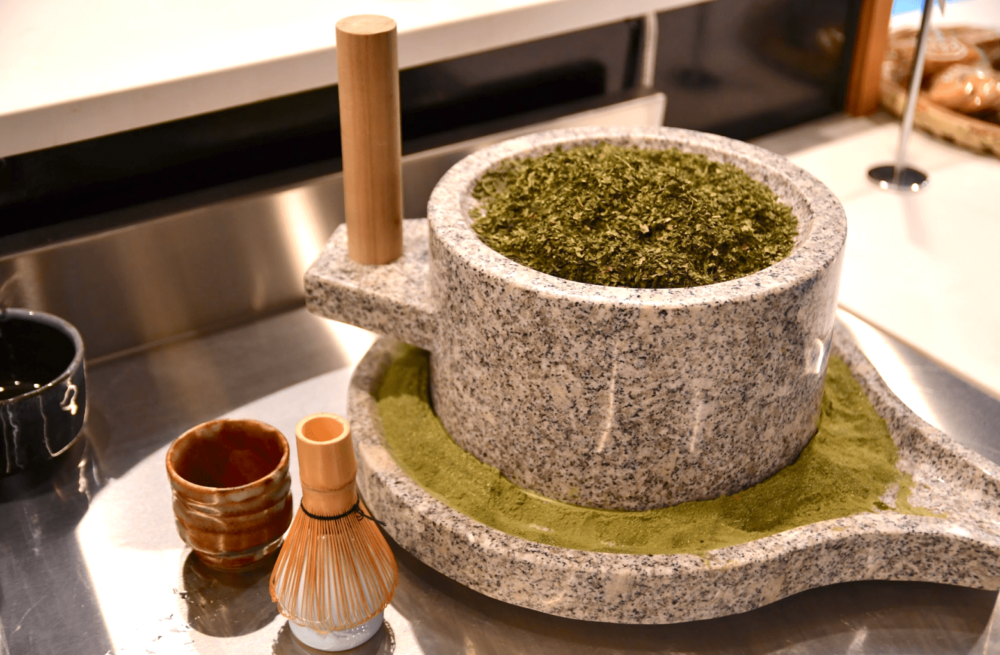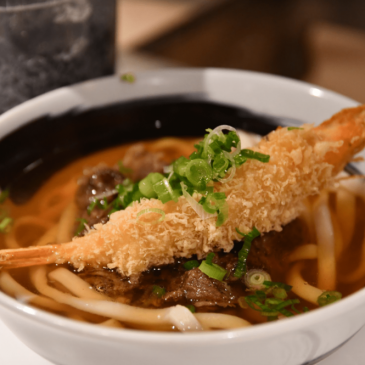The expansive Japan Village in Sunset Park combines a grocery store with an array of street-style food stalls
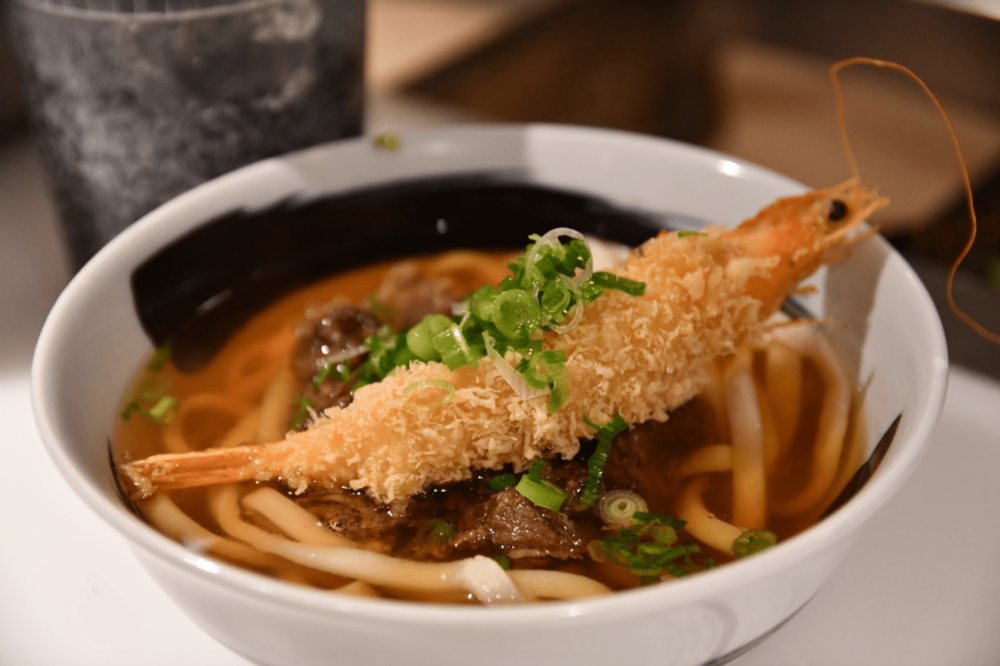
Saying that Brooklyn is a food destination is, at the end of 2018, a full-on platitude. Yet, despite the worldwide culinary experience the borough has been offering, Japanese cuisine has had a shortage of representation. At least until now.
Since mid November, the 20,000-sq.-ft. Japan Village in Sunset Park’s Industry City has been in soft-opening mode (a grand-opening date remains to be announced), with offerings ranging from an outpost of Manhattan’s Japanese supermarket Sunrise Martto back-alley-style stalls that celebrate the wide variety of Japanese comfort food ranging from ramen to okonomiyaki, the decadent savory pancakes. Opening soon are an izakaya-style pub, a Japanese liquor store and, eventually, a dry-goods store offering pottery, stationery and cosmetics.
“We first started looking at this concept two years ago,” said Jim Somoza, Industry City’s director of development. “We realized that there was no Japanese market in Brooklyn at all.” He recalls that, when he was living in Manhattan before relocating to Brooklyn, he frequently visited Katagiri, a storied Japanese grocery.
“I moved to Brooklyn and I realized Japanese food really resonates with people because it’s an exotic Asian food that is also accessible and healthy.” It’s the healthy component that, he believes, sets Japanese food apart from what Americans normally associate with Chinese, Vietnamese and Korean fare.
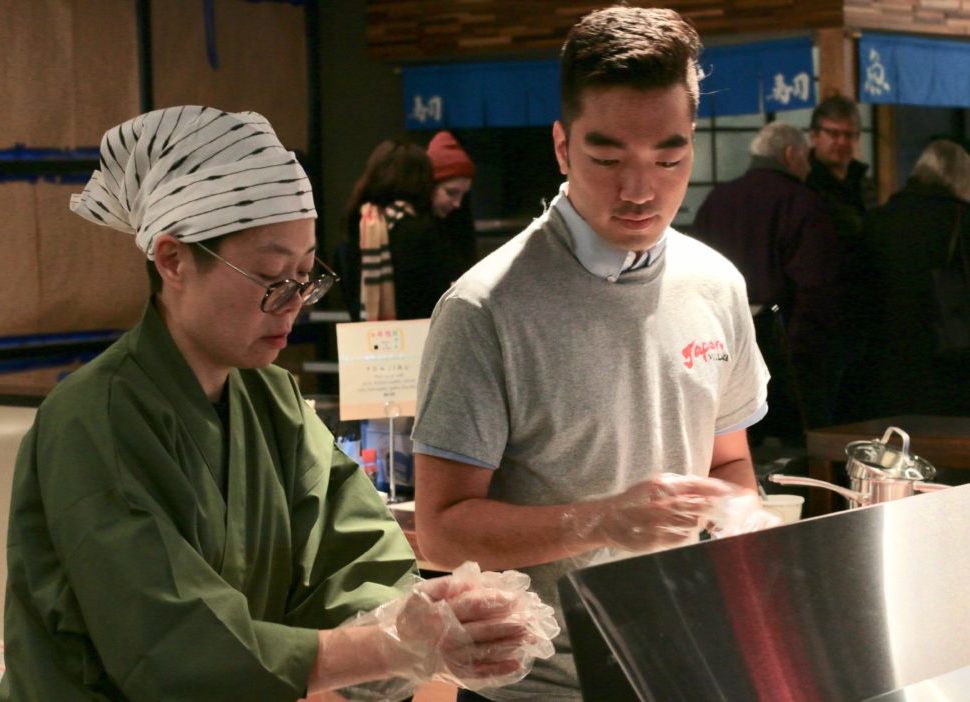
Looking for a partner to develop the idea, Industry City reached out to Sunrise Mart and Katagiri, getting an enthusiastic response from Tony Yoshida, whose family owns several businesses including Sunrise Market and the Michelin-starred Kyo Ya. Somoza recalls a lot of “What if we did this?” and “What if we did that?” as the two parties planned the new Brooklyn marketplace. “It’s the best when that happens,” said Somoza, “because I am not just trying to sell them Industry City, and they’re not just trying to sell me on the concept. We both married right away.”
The food stalls offer a gamut of Japanese styles including bento, ramen, rice bowls, Japanese appetizers and Teppanyaki griddle-cooked steak and lobster. The stalls share an aesthetic that, thankfully, eschews a Disneyland-like idea of a Japanese food hall. In other words, they’re clean but not culturally sterile.
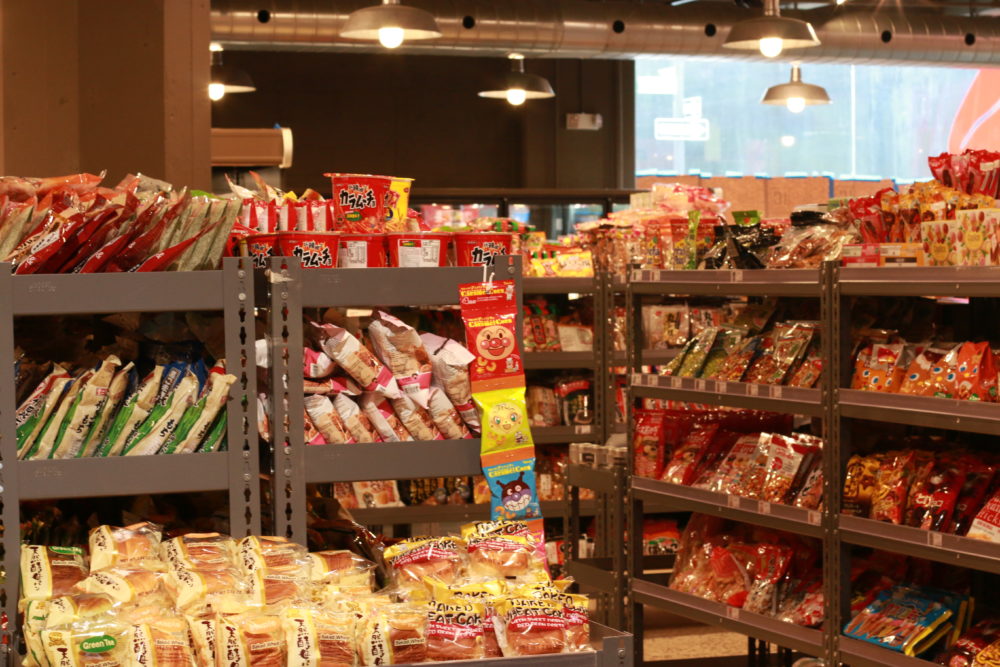
The grocery-store component of the marketplace contains a selection of locally hard-to-find items including the green-tea matcha KitKat candy bar; Milky yogurt in a collagen-and-honey flavor; and Tamari Shoyu Sekigahara soy sauce, containing licorice root. The forthcoming dry-goods store will also feature Japanese cosmetics, which tend to offer high quality and moderate prices. “We don’t want to lose the crafts, the small-scale producers, and we can give them an American audience,” Yoshida told the New York Times.
Industry City’s Somoza wants the 6-million-sq.-ft. complex to be a hub for cuisines from all around the world, where people can stroll for a whole afternoon and take a bite at one place, then one at another. Japan Village joins the ranks of such vendors as Yaso Tangbao (Shanghai-style street food), Bangkok B.A.R. (Thai), Ejen (Korean) and Table 87 (pizza). Garnering enough foot traffic does not seem to be an issue: 7,500 people work at Industry City, up from 2,000 four years ago and heading for an estimated 15,000 in the next two years.
On the weekends, Industry City is evolving into a leisure-time destination. “It’s a place for people to come and hang out, especially in the wintertime, because it’s a lot of heated, big space,” said Somoza. “People can come with their kids, who can run around without breaking anything, and you can try all the cuisines.” An estimated 15,000 people per weekend have bought into that proposition. Adventuresome tourists have too, drawn by the post-industrial vibe of the giant buildings, mostly constructed in the early 20th century. “People love seeing buildings like this that have an authentic industrial past being reused for things like this,” said Samoza.
